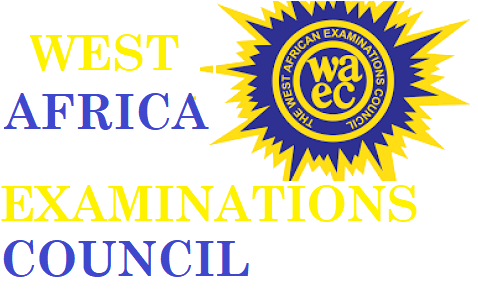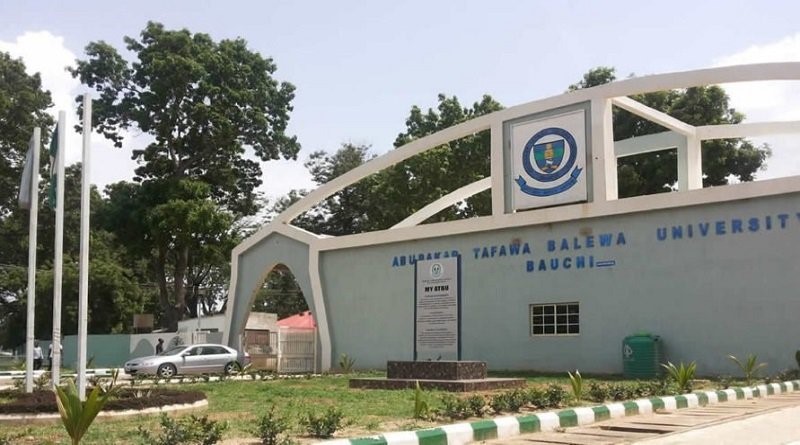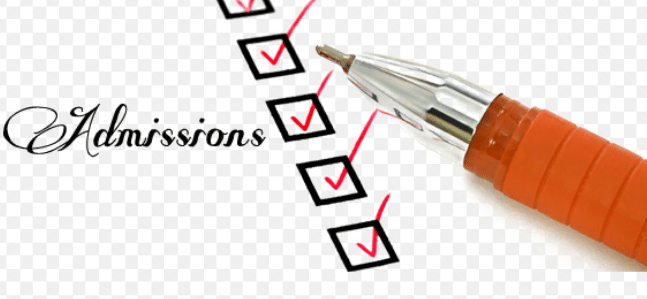WAEC Syllabus for French. WAEC Syllabus for French is available for all candidates who want to participate in the examination. The West African examination council (WAEC) has officially introduced a syllabus that will guide all the WAEC candidates who wish to write the WAEC examination this year. For a very successful WAEC French examination for this year, you need to check out the available areas of concentration. It has been divided into sections with chapters, followed by the topics to be covered in preparation for the exams. In the WAEC Syllabus for French, you will also see the format of how the WAEC French questions will be presented. Jamb form
There are always 3 sections to answer questions from. Paper 1 is Objective questions, paper 2 is essay questions and paper 3 is comprehension/reading. Where paper one (1) carries 1 hour for 40 marks; paper two (2) carries 1 hour 15 minutes for 40 marks while paper three (3) carries 50 marks for 40 minutes. WAEC Syllabus for French

This WAEC syllabus is for both the O’level WAEC and General Certificate Examination (GCE) candidates. Final year students in the senior secondary school level and external candidates are eligible to make use of this syllabus and prepare ahead of the examination.
See the full detailed information concerning the WAEC French Syllabus below. Waec Result
PREAMBLE
The French syllabus is drawn from the Senior High School curricular of member countries and seeks to impact students with the requisite knowledge, skills, attitudes and values to communicate effectively in French for personal development and understanding of and participation in the affairs of the Sub-region and the world at large.
GENERAL AIMS AND OBJECTIVES
This syllabus is intended to test the candidates’ ability to use the four language skills namely, listening, speaking, reading and writing to promote communicative competence.
SCHEME OF EXAMINATION
There will be three papers – Papers 1, 2 and 3, all of which should be taken. Papers 1 and 2 will be a composite paper, to be taken at one sitting.
PAPER 1: Will consist of forty multiple-choice questions, to be answered within 1 hour for 40 marks.
PAPER 2: Will consist of two sections with three essay questions each. Candidates will be required to answer two questions in all, one question from each section. Both questions will be answered within 1 hour 15 minutes for 40 marks.
PAPER 3: Will test candidates’ listening comprehension, and reading and conversation abilities. Each candidate will require 40 minutes for the test. The paper will carry 50 marks.
DETAILED SYLLABUS
More detailed requirements for the tests are as follows: Npower Recruitment
PAPER 1
- Section A: Comprehension
This is designed to test candidates’ ability to read and understand standard written documents in French.
Two passages, each of about 150 words, will be provided and a total of five short questions will be set on each. The questions in this section will be multiple-choice questions only. Candidates will be required to answer all questions.
- Section B: Structure
This section is designed to test candidates’ ability to use, inappropriate communicative contexts, French words, expressions and structural patterns. Thirty short questions will be set and candidates will be required to attempt all of them. Dollar to Naira Rate
PAPER 2
This paper is made up of two sections: (a) Essay and (b) Letter writing. It will test candidates’ ability to write freely and correctly on topics of general interest, using the appropriate structures, registers and tenses.
Section A: Essay
Section B: Letter writing
Three questions will be set on each. Candidates are expected to answer one question only from each section. The expected length of each composition will be about 100 words.
PAPER 3
- Listening Comprehension
This paper will test candidates’ ability to listen to, and understand a straightforward passage in French. The test which will be based on a passage to be read aloud by the examiner will be about 200 words long. It will deal with issues of general interest. During the first 10 minutes, the passage will be read twice. Candidates will study the questions for 3minutes before the second reading. At the end of the second reading, candidates will be allowed7 minutes to answer, in writing, 10 questions based on the passage. The questions may not be multiple-choice questions only but may also include other forms of language testing such as open-ended questions, transformation and substitution.
(b) Reading
The aim is to test candidates’ ability to read aloud, with the appropriate pronunciation and fluency. For this purpose, a simple passage of about 100 words will be provided. The passage will be of contemporary interest. In principle, candidates will be asked to read once and at a normal pace.
(c) Conversation
The conversation test will last about 10 minutes per candidate. Topics to be discussed will be drawn from themes of general and contemporary interests such as sports, health, leisure, education, politics, culture, etc. There will be two sections, one on dialogue and the other on exposition, as follows:
- Dialogue – This will test candidates’ ability to express themselves freely in a dialogue. For this purpose, candidates will be expected to respond to a minimum of ten questions. For Ghana, five of these questions will be on selected literature texts.
- Exposition – This will test candidates’ ability to speak freely on a given topic in French. The candidate is expected to make a minimum of 5 sentences.
- NOTES ON THE SYLLABUS
(1) Structure
This will be tested, as far as possible, within suitable communicative contexts. To this end, candidates are expected to be familiar with the following:
- Parts of speech (Grammatical categories)
- Articles – definite, indefinite, partitive. (Gender and number where applicable).
- Verbs
(a) Types: regular and irregular
(b) Common moods and tenses
(c) Standard expressions such as
– avoir + noun (e.g. avoir faim)
– venir de + infinitive. Jamb Result
- Nouns – complements, gender, number
- Pronouns – personal, possessive, indefinite, demonstrative, relative, impersonal, (number and gender where applicable).
- Adjectives – possessive, demonstrative, indefinite interrogative, (agreement and position)
- Adverbs – formation and position, special adverbs: mal, vite, fort, tout, etc.
- Negatives – negative expressions (ne…pas, ne…rien, ne… jamais, etc.)
- Conjunctions in common use: et, mais, donc, , ou, parce que, etc
- Preposition – à, de, sur, en, devant, etc.
- Sentence patterns (declarative, interrogative, exclamative, etc)
- Voice – active/passive
- Direct speech/reported speech
- Compound and complex sentences
- Idiomatic expressions& proverbs
- Forms of writing (formal/informal)
- Context and meaning e.g. to convey politeness, disgust, disappointment.
- Common figures of speech e.g. (similes, metaphors, hyperbols)
- Structures of major “Acte de Parole” e.g. (exprimer ladeception, la probation, le degout, la surprise, le plaisir, le regret, etc.
SUGGESTED READING LIST
The following may be of assistance to the candidates:
- Course books
(i) De Grandsaigne, J: – France-Afrique 4, Lagos, Macmillan
(ii) Plaisant, Chantal, et al: –Trans Afrique 3, Lagos, Macmillan
(iii) Ajiboye, Tunde et al: – Nouvel Horizon 4, Ibadan, Bounty Press Ltd.
(iv) Mazauric, Catherine et al: – On y va 3, Ibadan, Spectrum Books
(v) Berard, Evelyne et al: – Tempo 1 & 2, Didier, Hatier
(vi) Task Force (MEST): – – Et en français 1 – 3, Freetown
(vii) Girardet J. &Pécheir J: – écho junior A2 méthode de français, Paris : CLÉ Internationale
2. General Grammar Books
(i) Ajiboye, T.: – Companion to French Grammar,
Ilorin, Info-Links Publishers
(ii) Ferrar H. A: – French Reference Grammar,
OxfordUniversity Press
(iii) Dangnaud-Macé, P &Sylès, G.
LeFrançais sans faute, Paris, Hatier Pounds to Naira
(iv) Le Nouveau Bescherelle: – La grammaire pour tous, Paris: Hatier
(v) Soyoye, F. A: – Manuel de conjugaison de verbes, Sophire Ed. Resources
- Any other useful grammar books
- ORAL Practice
(i) Ajiboye, T: – An Introduction to Practice in Oral French, Revised edition, Ibadan, Bounty Press Ltd.
(ii) Grandsaigne,J: – France Afrique 5, Lagos, Macmillan
(iii) Adegbilero, L. M – Teaching Yourself French (with cassette/CD) Revised edition, Ibadan, Bounty Press Ltd.
(iv) Chamberlain, Alan & Steele Ross Guide pratique de la communication, Paris, Didier
Any other useful document designed for Oral Practice
- Literature (Ghana only)
(a) J. N. D. Dodoo: La Belle Fleure et d’autres Histoires, Accra
(b) TundeAjiboye: Olurounbi ou Le Prix d’un Pari
(c) Hector, Malot: Sans Famille, Paris
- Dictionaries/Glossaries
(i) Any useful French dictionary e.g.
– Micro Robert/Petit Robert
– Petit Larousse
– Dictionnaire du français fondamental pour l’Afrique
(ii) Any useful French – English/English-French dictionary e.g.
- Shorter Harraps
- Collins
- Cassell’s
(iii) Any useful French glossary e.g.
Français Fondamental for West Africa, WAEC, Accra, Black Mask
Ltd,
To enhance comprehension skills, extracts from simple modern literary and other texts (magazines, newspapers, brochures, etc.) dealing with contemporary issues may be of immense assistance.
Check and Confirm: How much is Dollar to Naira Pounds to Naira Rate Today



![UNILAG HRDC Application form 2024/2025 [Advanced Diploma, Diploma & Professional Certificate courses] UNILAG HRDC Application form 2024/2025 [Advanced Diploma, Diploma & Professional Certificate courses]](https://infoguidenigeria.com/wp-content/uploads/2021/08/UNILAGOS.jpg)